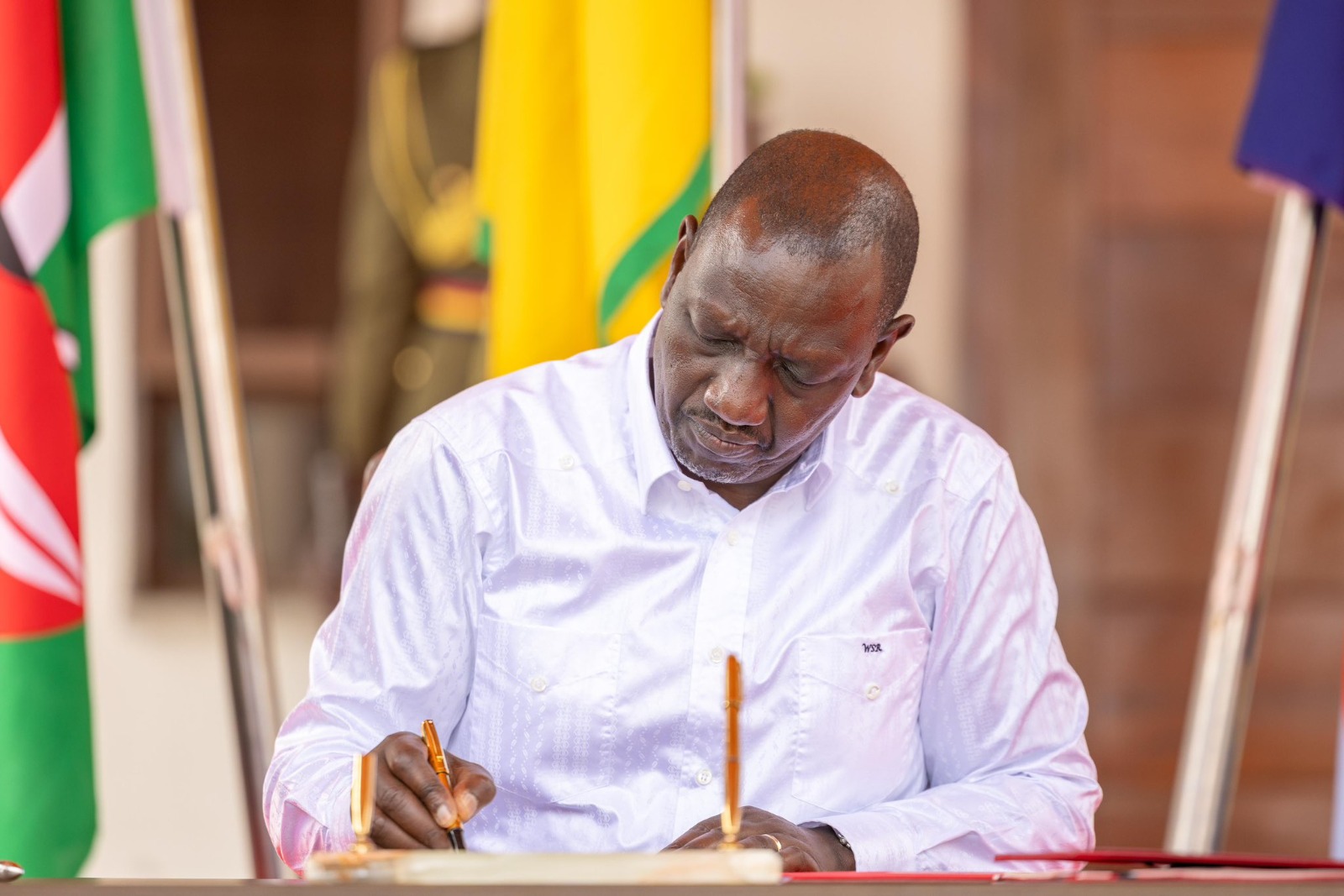President Ruto blames anticipatory bail for slowing anti-corruption fight

The President singled out anticipatory bail as a legal loophole that he claims is being exploited by those accused of stealing public funds.
President William Ruto has called on the Judiciary to stop providing a protective shield to individuals accused of corruption through anticipatory bail, warning that such orders hinder arrests and slow down prosecutions, weakening efforts to fight graft.
Speaking on Wednesday at the Biennial Devolution Conference in Homa Bay, Ruto said the courts should not serve as a sanctuary for corrupt officials.
“A corrupt person goes to court and gets anticipatory bail. This makes it impossible for such a person to be arrested and prosecuted. How does that help fight corruption?” he asked.
The President singled out anticipatory bail as a legal loophole that he claims is being exploited by those accused of stealing public funds.
“There is an innovation called anticipatory bail, which only happens in Kenya, allowing those accused of stealing public funds to evade prosecution. This takes us backwards,” Ruto said.
Ruto emphasised that corruption undermines national transformation and stressed the need for public resources to be used as intended.
“No facility should charge citizens for a service that has already been paid for by the government. Without a doubt, technology can cut waste and boost efficiency,” he added.
Highlighting government initiatives, Ruto pointed to the e-Citizen platform, which has expanded from offering a few services in 2013 to a 24/7 one-stop shop providing more than 22,000 government services.
Over 14 million Kenyans are registered, with 500,000 logging in daily for services such as passports, licences, business registrations, land transactions, and certificates, all without queues or unnecessary bureaucracy.
The President insisted that corrupt leaders must face justice without interference. “The Ethics and Anti-Corruption Commission (EACC) must take up its role. I have made it absolutely clear that there will be no sacred cows and no telephone calls from anywhere, below or above, to stop anybody from being prosecuted for corruption,” he said.
Ruto’s remarks follow criticism from the Judicial Service Commission (JSC) over personal attacks on judges, particularly regarding bail and bond rulings.
JSC Secretary Winfridah Mokaya expressed concern over the backlash to recent court decisions, including the release of 111 people arrested over the July 7 Saba Saba protests in Laikipia County on Sh50,000 cash bail each, and the release of 37 youth charged with terrorism-related offences over June and July protests on Sh50,000 bail or Sh200,000 bond.
Mokaya warned that public attacks on judges threaten judicial independence and erode public confidence in the justice system.
“These decisions are guided by the Constitution, the Criminal Procedure Code and the Judiciary’s bail and bond policy guidelines. Judicial officers do not act arbitrarily,” she said.
She urged dissatisfied parties to pursue appeals or reviews through legal channels rather than targeting judges personally and confirmed that security measures for judicial officers are in place through the Judiciary Police Unit.
“The commission reaffirms its unwavering commitment to defending the decisional independence of all judicial officers and judges,” Mokaya added.
